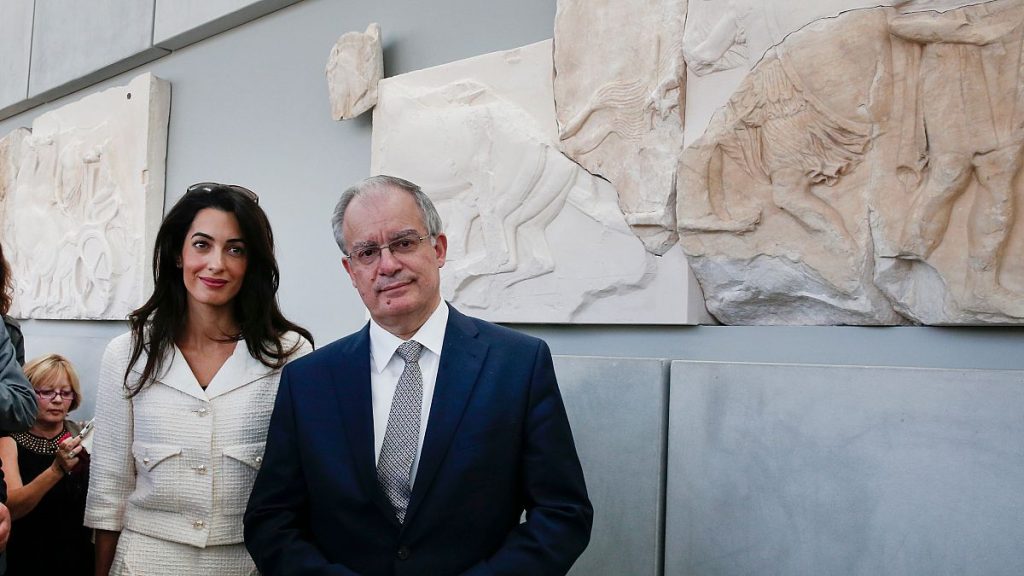The Greek government, led by the center-right New Democracy party, has nominated Constantine Tasoulas, the current speaker of parliament, to succeed Katerina Sakellaropoulou as the nation’s next president. Tasoulas, a 65-year-old lawyer and seasoned member of the ruling party, previously served as Minister of Culture from 2014 to 2015. This nomination has sparked controversy, with opposition parties criticizing the selection of a politically conservative figure for a role traditionally viewed as above partisan politics. They argue that this decision represents a missed opportunity to foster unity and consensus within the Greek political landscape, particularly given the current parliament’s strong right-wing leanings.
The Greek presidency, while largely ceremonial, holds symbolic importance as the head of state. Presidents are elected for five-year terms by the 300 members of the Hellenic Parliament. The election process involves up to five rounds of voting, requiring a supermajority in the initial rounds and a simple majority in the later stages. With New Democracy holding a slim majority of 156 seats, they are in a strong position to secure Tasoulas’s election. However, this narrow majority, coupled with the presence of the center-left PASOK (31 seats) and the left-wing SYRIZA (26 seats), creates a complex parliamentary dynamic, marking the most right-leaning Greek parliament since the restoration of democracy in 1974.
Concerns over the increasing rightward shift of Greek politics have been echoed by independent analyses, including a 2024 report from the Varieties of Democracy Institute (V-Dem). The report highlights a concerning trend towards democratic backsliding and a rise in autocratic tendencies within the Greek government. While the presidency is not directly involved in policy-making, the choice of a figure perceived as politically aligned with the ruling party further fuels these concerns, reinforcing the impression of a consolidation of power within the right-wing spectrum.
Tasoulas’s previous tenure as Minister of Culture saw him actively engaged in the high-profile campaign to repatriate the Parthenon Marbles, also known as the Elgin Marbles, from the British Museum in London to Greece. These sculptures, removed from the Acropolis in Athens in the early 19th century by Lord Elgin, have been the subject of a long-standing dispute between Greece and the United Kingdom. Tasoulas’s efforts to secure the return of these historical artifacts garnered international attention and support, including the involvement of prominent human rights lawyer Amal Clooney, who helped raise awareness about the Greek government’s claim that the marbles were illegally removed.
The repatriation campaign underscores the ongoing debate surrounding cultural heritage and the rightful ownership of historical artifacts. The Greek government maintains that the removal of the Parthenon Marbles was a violation of their cultural patrimony and seeks to reunite them with the other Parthenon sculptures housed in the Acropolis Museum in Athens. The British Museum, on the other hand, argues that Lord Elgin acquired the marbles legally and that they are part of a global cultural collection accessible to a wider audience. This contentious issue reflects broader questions about colonialism, cultural appropriation, and the responsibility of museums to address historical injustices.
The nomination of Constantine Tasoulas for the Greek presidency occurs against a backdrop of evolving political dynamics and ongoing debates about the country’s democratic trajectory. While the role is largely ceremonial, the selection of a figure closely aligned with the ruling party, coupled with the documented concerns about democratic erosion, has generated apprehension among opposition groups and observers. Furthermore, Tasoulas’s past involvement in the high-profile campaign for the return of the Parthenon Marbles highlights his engagement with issues of cultural heritage and national identity, themes that continue to resonate within Greek society and international relations. The coming presidential election and Tasoulas’s potential presidency will undoubtedly shape the political landscape and cultural discourse in Greece in the years to come.














